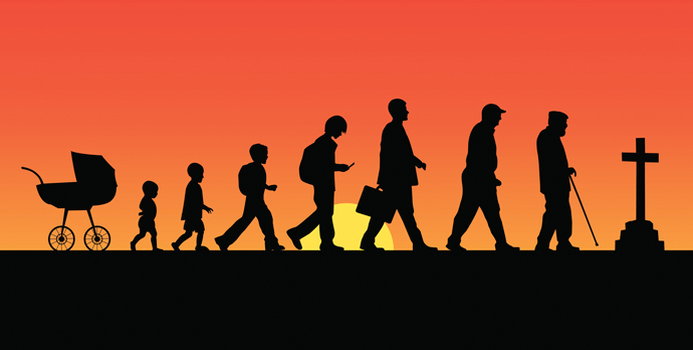Slowly and surely your body begins to age, and before you have time to blink a decade has passed. Knowing about the normal aging process can help you feel better about what to expect, and prevent early signs of aging before your time.
In Your 20s
When you’re in your 20s, you likely look (and feel) young and strong, bursting at the seams with energy and sex drive. In fact, the American Society for Reproductive Medicine says that for women, the 20s is the best age for fertility and healthy reproduction. You’re probably not worried about chronic diseases like heart disease and cancer. However, it’s important to take some preventative steps. These include regular exercise, protecting your skin from UV rays, maintaining a healthy weight, avoiding excess alcohol, and saying no to smoking.
The University of Utah Health Care says that in your 20s, you’re susceptible to:
- Immune system disorders (rheumatoid arthritis and lupus)
- Sexually transmitted diseases (if sexually active), including cervical cancer caused by human papillomavirus (HPV)
- Diabetes (if you’re overweight, have a poor diet, and don’t exercise)
- Reduced immunity (with lack of sleep or stress)
In Your 30s
In your 30s, your body tends to lose lean body mass and gain fat, according to MedlinePlus. Your bones may also begin to lose some density. That’s why it’s important to exercise regularly (including weight-bearing cardiovascular exercise and resistance training) to reduce muscle and bone loss associated with aging in your 30s.
For women, fertility begins to decline in the 30s — particularity after age 35 — says the American Society for Reproductive Medicine. STDs are still on the radar for 30-something adults if they are sexually active with more than one partner. And, pre-diabetes and diabetes are concerns for people who are overweight, lack of exercise, and have poor eating habits. The American Thyroid Association suggests getting thyroid levels checked beginning at age 35 to rule out thyroid disorders (like hypo- or hyperthyroidism).
In Your 40s
Your 40s are a time you’ll likely continue the trend of lean tissue loss and increases in body fat, especially around your midsection. Fertility in women decreases as well, and at age 40 women have just a 5 percent chance of getting pregnant each month, according to the American Society for Reproductive Medicine. Your risk for heart disease goes up in your 40s if you’re a man; Harvard Health Publications says that up to 10 percent of all heart attacks occur before age 45, particularly in men.
Women in their late 40s may begin the process of menopause, and should be screened for breast cancer using mammograms beginning at age 40, suggests MedlinePlus. A woman’s risk for osteoporosis increases, as bone density tends to decrease with age (especially in women). You may begin to notice (if you haven’t already) hair loss, gray hairs, and wrinkly or sagging skin in your 40s.
In Your 50s
By the time you reach 50, your chronic disease risks are higher — especially for heart disease. While men see higher heart disease rates starting at age 45, women’s risks increase at age 55, says the National Heart, Lung and Blood Institute. The average age for menopause for women is age 51, according to the American Society for Reproductive Medicine. Colonoscopies are generally recommended for men and women beginning at age 50, as colon cancer (and other cancer) risks increase. Lung cancer screening is often suggested in your 50s if you’re a smoker.
Beginning at age 50 and every 10 years after that, many adults lose about 1 centimeter of height, says MedlinePlus. MedlinePlus also notes that men tend to gain weight until they reach age 55; then slowly shed pounds due to drops in testosterone and lean muscle loss.
In Your 60s and Beyond
The 60s are golden years for many adults — working less, grandparenting, and enjoying life. Women generally gain weight until age 65; then slowly shed pounds due to muscle losses. Poor eyesight and hearing loss may become concerns. Chronic disease risks (like heart disease, cancer, diabetes, and osteoporosis) and lean muscle loss are still on your radar at age 60. You may begin to notice arthritis, stiff joints, and increased fatigue.
You’ll generally experience height loss at a more rapid rate beginning in your 70s, says MedlinePlus. Furthermore, dental problems, dementia (forgetfulness), falls, and bone fractures may be concerns in your 70s. You might notice increased fatigue and sensitivity to cold temperatures. And of course, heart disease is still a concern as well.
Bottom Line
Aging is a normal part of life, as your body slowly starts to deteriorate. Keep yourself looking and feeling as young as possible by following a few simple tips: avoid smoking and excess alcohol, practice healthy eating habits, exercise regularly, get plenty of sleep, take a multivitamin supplement if your doctor recommends it, protect your skin from UV radiation, maintain a healthy weight, and attend regular doctor checkups.
[Image via Getty]



